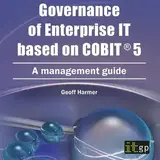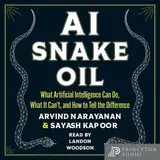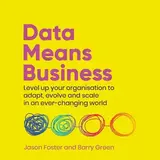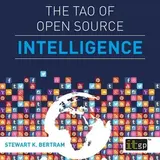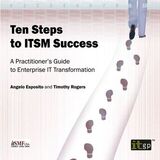

Ten Steps to ITSM Success
Narrador: Peter Silverleaf
Duración 6h 42m
As organizations seek to boost revenue, cut costs and increase efficiency, they increasingly look to IT as a strategic partner in achieving these objectives. Ten Steps to ITSM Success helps IT to prepare for this role by providing a detailed and practical guide to implementing ITSM best practices. It is written for ITSM practitioners and consultants, but will also be of interest to IT Directors and C-suite executives looking to transform the role of IT into a value-creating business partner, to establish a service management culture, and to drive improvements in their respective organizations. This book is a co-publication with itSMF USA and is the second book in the Thought Leadership Series Angelo Esposito is a program manager with Jacobs Technology, and is currently advising the US Navy on its enterprise ITSM transformation. Angelo is a former CIO with over 25 years' experience gained in a variety of sectors including commercial, non-profit and government. Timothy Rogers is a consultant specialising in service management, governance and continual improvement. Timothy is a former CTO with over 15 years' experience working with high-tech start-ups, financial services firms and large government clients.
1: Setting the Stage
2: Inventory the Current Service Offering
3: Validate the Current Service Model
4: Establish an ITSM Steering Committee
5: Define the Ideal Target State
6: Create the IT Strategic and Tactical Plans
7: Define the Organizational Roles and Responsibilities
8: Standardized Development Approach
9: Strategy and Planning
10: Logical and Physical Design
11: Build and Test
12: Conduct Service and Process Health Assessments
13: Analysis and Deployment
14: Operation and Sustainment
15: Balanced Scorecard and Continual Improvement
16: Putting it all Together
Publicado por: IT Governance Publishing Ltd
Título similares
Ver todosTambién te podría interesar...
Ver todos¿Cómo funciona?
Crear cuenta.
Crea una cuenta gratuita aquí.
Descarga la aplicación Voxa
Disponible para Android y iPhone en Google Play o App Store.
Pruébalo gratis 7 días
Tienes acceso a 200.000 libros y a toda la experiencia Voxa.
Puedes escuchar sin Internet
Descarga tus audiolibros favoritos y disfrútalos incluso sin conexión a Internet.








